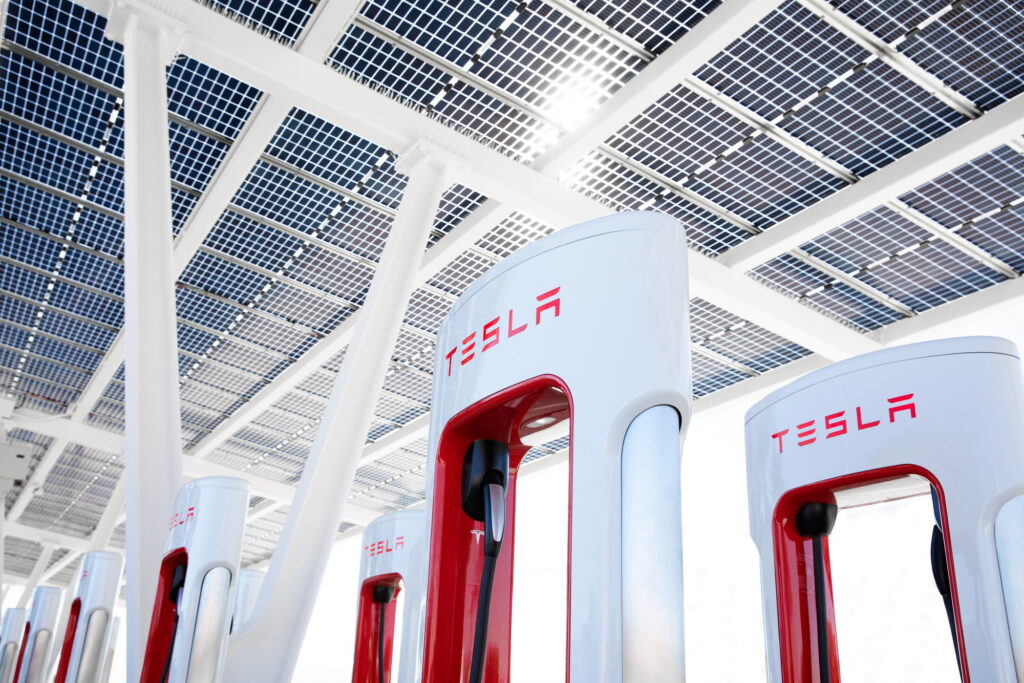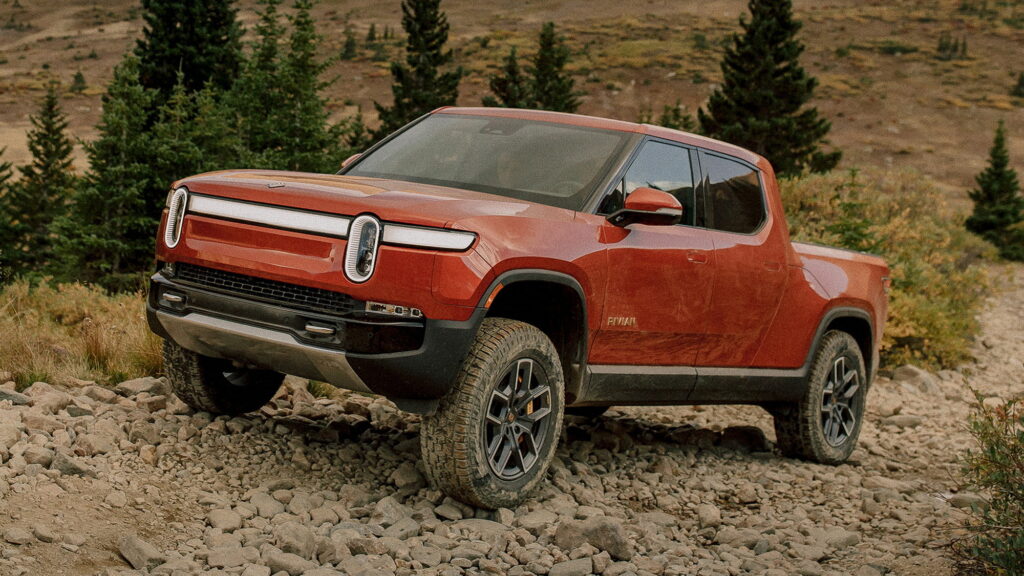Rivian is the latest automaker to announce that its vehicles will use the North American Charging Standard (NACS) charge ports pioneered by Tesla in its vehicles. The electric automaker follows Detroit giants, GM and Ford, in its decision to use the plug type.
“The adoption of the North American Charging Standard will enable our existing and future customers to leverage Tesla’s expansive Supercharger network while we continue to build out our Rivian Adventure Network,” said R.J. Scaringe, Rivian’s founder and CEO. “We look forward to continuing to find new ways to accelerate EV adoption.”
As Scaringe notes, the move will allow Rivian drivers to use Tesla’s supercharger network. However, Rivian says that it will continue to expand its own Rivian Adventure Network of charging locations that are mostly near off-roading trails.
Read: GM Joins Ford In Adopting Tesla’s Supercharger Standard

To start, the announcement means that an NACS adapter will be made available to R1T and R1S customers in the spring of 2024. The automaker then plans to make the NACS plug standard on its future R1 models and its upcoming R2 vehicles starting in 2025.
“It’s great to see the industry coming together to adopt the North American Charging Standard,” said Rebecca Tinucci, Tesla’s senior director of charging infrastructure. “By doing so, we’re collectively ensuring all EV drivers have access to easy to use, reliable charging hardware. We look forward to welcoming Rivian owners to thousands of our Superchargers across North America.”
The move is a big one for Rivian, which has become part of a growing trend towards adoption of the NACS plug. These moves are part of a growing focus on charging station reliability, something that has been found lacking in stations that utilize the Combined Charging System (CCS), which is currently used by the majority of non-Tesla EVs on the road today.
However, there are some concerns about the sudden move toward NACS. Although Tesla’s Supercharger network is found to be more reliable, CCS is used more broadly outside of North America, leading to fears of splintering markets, reports TechCrunch.
Most Rivian customers seem to be in favor of the switch, though. According to a poll on Rivian Owners Forum from earlier this month, 78 percent of participants were in favor of switching to NACS, and now that the move is official, reaction is largely positive.








